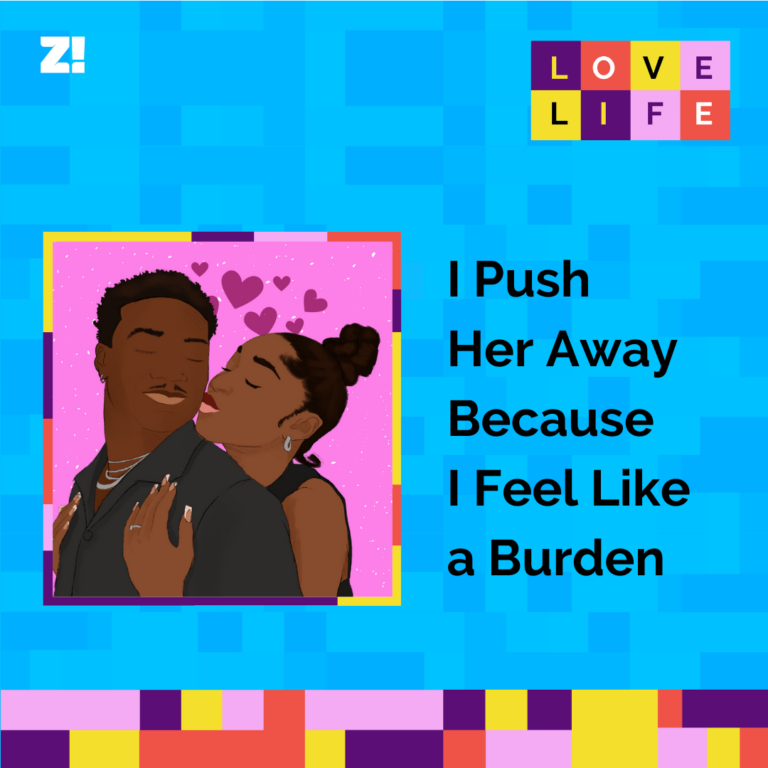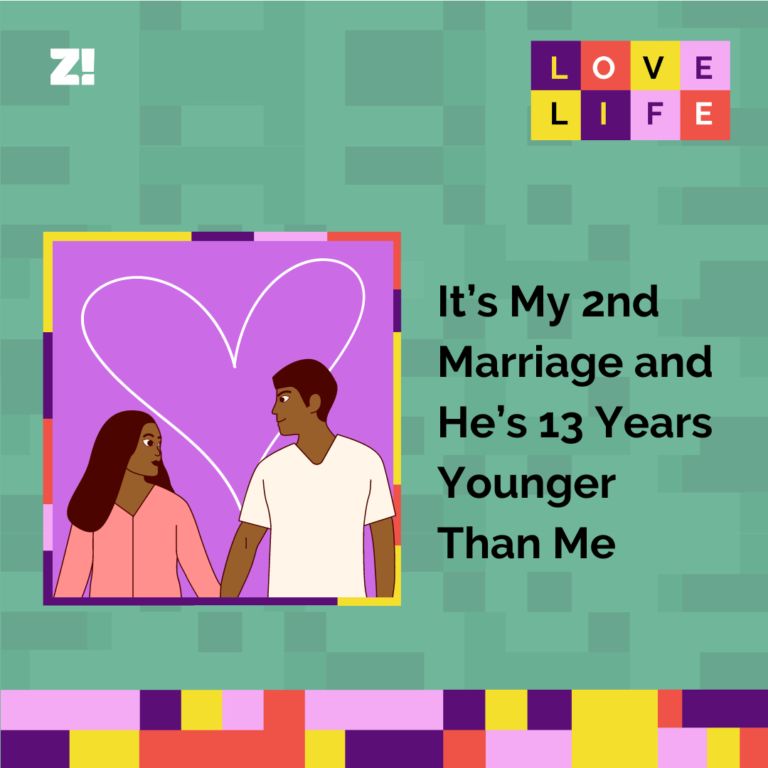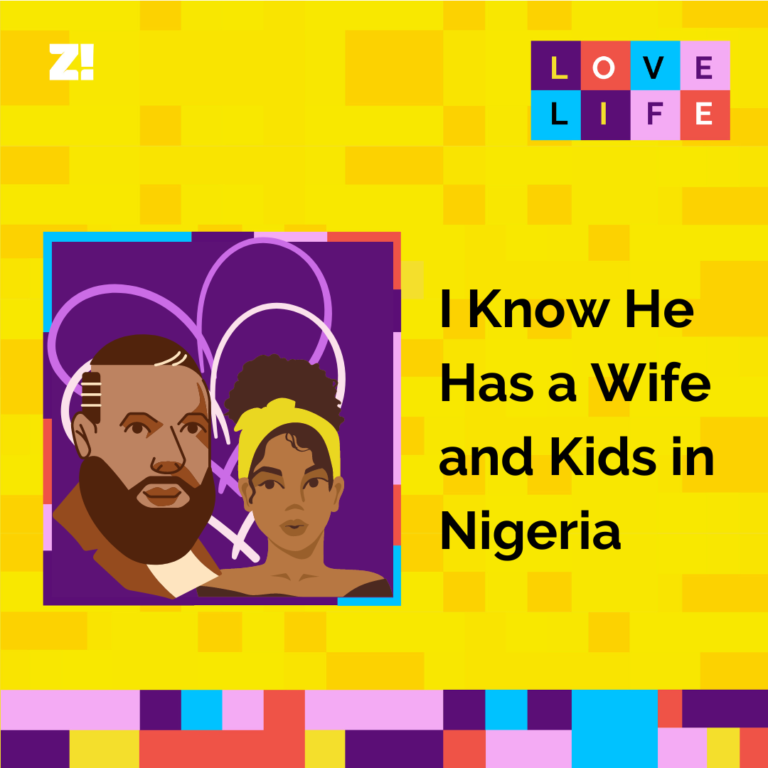Love Life is a Zikoko weekly series about love, relationships, situationships, entanglements and everything in between.
What’s your earliest memory of each other?
John: We met at a family gathering, a naming ceremony. I was friends with one of her older cousins, who invited me. I was introduced to her, and she made a big impression on me. She was smart and beautiful — and still is.
So I asked if I could visit her at school, and she agreed.
Funmi: He was charming when we met. I remember thinking he dressed so well for someone who wasn’t Yoruba. His Senator was clean and crisp, and his shoes; he didn’t overaccessorise. At that time, they used to tell us South-South people knew how to spoil women and treat them like eggs, unlike Yoruba men. So I saw him as the full package because he also looked good.
What was his first school visit like?
Funmi: He surprised me, so I didn’t even have the chance to be nervous. He just showed up on campus and someone came to call me in my hostel. I was in my final year, first semester. At first, I didn’t even recognise the name when they told me. When I saw him, I screamed. I was so embarrassed that I did that.
John: I thought she wasn’t happy to see me. Then I saw her smile and realised she was just surprised — just as I planned. I brought her a gift and some food. We sat and ate together and that’s how I started visiting until her graduation.
Did you consider yourselves in an official relationship during this period?
John: Yes. I asked her to be my girlfriend on my second visit. But she didn’t answer me until we met during her brief break before she had to be back in school chasing her project.
Funmi: I wanted to say yes right away, but I had to form first. To be serious, though, I wanted to be sure I was saying yes for the right reasons. I also thought about the fact that I knew he was a Christian, and I was raised as a Muslim.
What made you decide to say yes in the end?
Funmi: I just really liked him. I loved all the attention he gave me most especially. I didn’t want that to end. I knew our religions might be an issue. But at that time, neither of us was particularly religious, so it didn’t feel like a big enough thing to keep me from trying out the relationship.
John: I also felt my family might have issues with it, but I chased her purely because I was attracted to her.
After her graduation, we went into courtship fully. We had several dates, and we talked about our future for almost two years. She was reluctant to talk about marriage, but I wasn’t.
If you want to share your own Love Life story, fill out this form.
Why were you reluctant, Funmi?
Funmi: I was young and fresh out of school. I wanted space to be a single babe in the real world before entering my husband’s house.
I also wanted to be sure I was doing the right thing. I had at least three relatives who were in abusive marriages, so I wanted to be absolutely sure. I wanted my nuclear family to get to know him well and give their blessings.
John: When we’d dated for about two years, her father called me to his house and told me he was happy with me marrying her but was considering that I was South-South.
He didn’t want my people to treat her anyhow.
Did he bring up religion?
John: Yes, but not even as seriously as I’d expected.
He said he didn’t want me to forcefully convert her. He asked if I’d allow her to practise her faith, and that was it. He was going to make her cut me off, but his intuition wouldn’t allow him to do that. I was speechless. We spoke for some time, and he said that when I was ready, I had his blessings.
Funmi: I didn’t even know this happened until several months later, after he proposed.
What was the defining moment that led to the proposal?
Funmi: I got pregnant. Haha.
John: Yes. But beyond that, I was already determined to marry her. We courted for three years, and it was three years of bliss. I’d never been with a more compassionate and graceful woman.
Funmi: He never even gave me a chance to doubt him or check whether I was missing out on something outside.
Immediately after I told him I was pregnant, he’d gotten a ring and asked me to be his wife. He took me to a restaurant for the proposal, and I was just there crying as strangers clapped for us.
What was the wedding like given your different religions?
Funmi: We had a white wedding, a nikkai and two traditional weddings. It was a week-long affair. I always think back to it with longing because it was such a happy time. I still don’t know how our families could afford it all.
John: It drained several pockets that’s for sure. But it was perfect. We still have the giant photo albums. Do you youngees still do photo albums?

Get your tickets here for a day of fun, networking and partayyyyy
I honestly have no idea. Did you get pushback from your families?
John: The opposition I foresaw didn’t come to pass as I feared. A few aunties and uncles were unhappy and showed it, but they didn’t do anything to stop or spoil our wedding. They just disapproved passively.
Funmi: I have an Aunty Bimpe who kept saying, “Ahhh, Sofiat. O ti lo fe Igbo. Catholic, for that matter. How do you want to do it?” She had the loudest voice ever. I just kept telling her that John wasn’t Igbo o.
It seems you’ve been able to blend religions perfectly?
John: I won’t say perfectly. It’s been a journey.
Funmi: When we got together, it wasn’t such a big deal because, truthfully, we were both surface-level in our religions. But over time, we’ve gotten more devout.
John: Some ten years into our marriage, Funmi started wearing scarves and turbans and covering all parts of her body. It was a bit shocking for me. She’s gone to Mecca four times.
Somewhere along the line, I also started taking prayer meetings and bible study seriously. These things didn’t happen all at once, but we found ourselves clinging back to the faith we were raised on to stay sane.
Funmi: But strangely, this didn’t divide us. I think it’s because we’ve come to accept that the other person’s religion isn’t cursed simply because it’s different.
I love that he’s embracing God. And I love how it has affected his heart and actions. He’s become a lot less stressed out about everyday struggles.
So you haven’t faced any struggles due to your different religions?
Funmi: Of course, we have. Family and clerics often try to plant seeds of discontent.
My Muslim brothers would raise questions challenging whether I’m a true believer if my husband is an “infidel”. When I was younger, they’d even refer to me like I was still unmarried.
John: In church, they just ignore. They pretend like she doesn’t exist.
When we started having kids it got even more complicated. She always took the three of them to the mosque from day one. But I only started taking them to church when our youngest was around seven years old.
Some of the church members treated them with a hint of disdain and never liked to refer to their mother. It was so funny. You could tell they were doing their best to be polite about it, too. I eventually changed churches, and that was that.
And what was raising your kids in two religions like?
John: It wasn’t without its struggles. Many friends thought it was unwise to do that, that we were only confusing them. But how could we help them choose which religion to follow?
I also sensed it would be the thing that caused a divide between Funmi and I if either of us said, “It’s better for them to follow my religion.” It would be like saying one religion was better.
Funmi: Exactly. Now that they’re adults, they’ve chosen their own paths. Our eldest is Muslim, while the other two followed their father. I think it’s worked out well.
What was your first major fight about?
John: Money.
We had a joint account from the first day of our marriage. And about two years in, I dug deep into it to buy a property at the spur of the moment because I thought it was too good of an opportunity to miss.
Funmi: But I’d been planning for months to start a wholesale business. I only had two months left, and it was perfect timing because I’d just left my job to take care of our first child.
I think I was most angry because he didn’t discuss it with me first. Also, we didn’t get the promised returns on time and had to struggle to take care of our child the way I wanted to because we were short on cash.
The house was hot for about five months.
John: I felt so bad, but I don’t know why it took me a while to apologise. I didn’t like that my good intentions were soiled so badly.
Funmi: Religion-wise, we also fought in our first year of marriage because he tried to have sex with me during Ramadan. Mehn, I cried o.
In my mind, I was saying, “This is why they told me not to marry infidel o.”
John: You’re not serious.
How did you get past these serious issues?
Funmi: Forgive and forget no ni.
John: The property investment worked out in the end. We’re still reaping the benefits today.
Funmi: And he’s not a fool. As soon as I explained to him what the holy fast meant, he respected it and helped me get through the month successfully.
I can boldly say that for the last 30 years, he has never not brought home a basket of fruits every day during Ramadan. Most times, he even joins the fast and prays to his God. He’s a blessed man.
How would you rate your Love Life on a scale of 1 to 10?
Funmi: Before nko. 10.
John: We’re one, so you know my answer already.
Check back every Thursday by 9 AM for new Love Life stories here. The stories will also be a part of the Ships newsletter, so sign up here.
Highly Recommended: Love Life: It’s Been 9 Years, and I Still Can’t Keep Up With Her Libido




